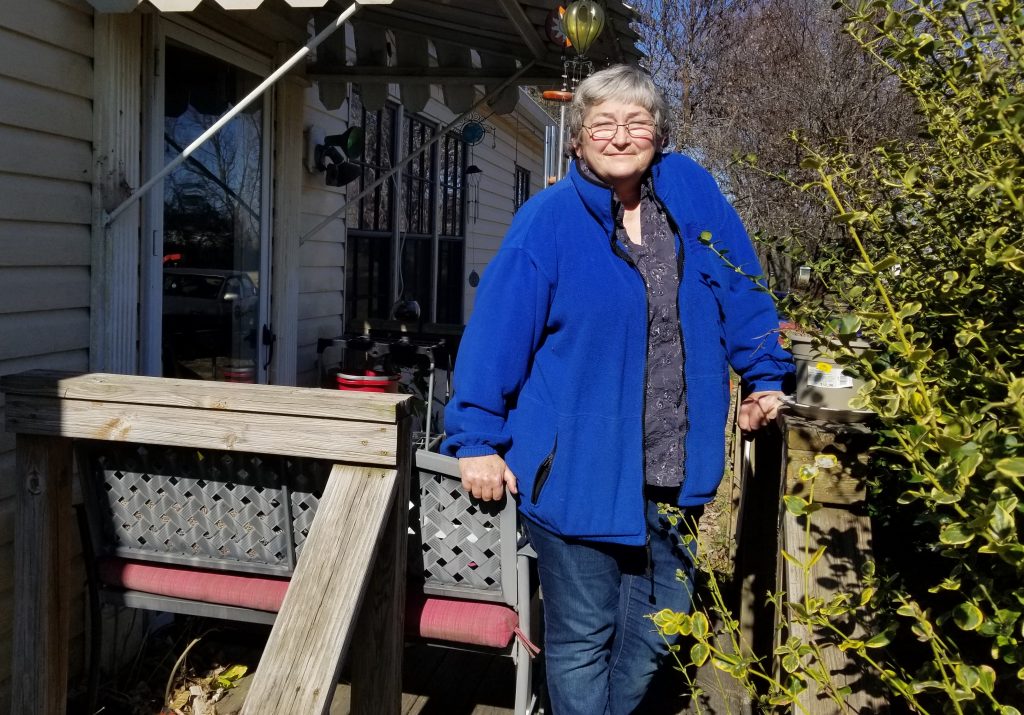Home » News » 2023 » November
News Brief
Nov. 8, 2023 |
By: Rudi Keller - Missouri Independent
Phelps County judge rules Missouri city tried to ‘intimidate’ woman with ban on city hall visits

By Rudi Keller - Missouri Independent
A small Missouri city’s attempt to “intimidate and silence” a critic violated both her First Amendment rights and the Missouri Sunshine Law, a judge ruled Tuesday.
Edgar Springs, a town of 200 in southern Phelps County, must pay a nominal fine of $150 to Rebecca Varney for banning her from city hall for four years, and for holding several closed meetings with business that should have been conducted in public, Judge John Beger decided.
The cost of the violations will be far more than that, however, because Beger also ordered the city to pay $43,995 in attorneys fees, plus additional costs that have not yet been calculated to bring the case to trial.
Varney, a longtime resident of the community, began looking into city finances after receiving a traffic ticket in 2018, Beger wrote in his ruling. She was concerned that the town’s police force was using traffic offenses as a means of generating revenue and began visiting city hall frequently to review documents.
She also regularly attended meetings of the Board of Aldermen, the judge wrote, raising criticisms of city operations and, when dissatisfied with the results, gathering signatures that resulted in a state audit. The audit found numerous deficiencies in financial administration and Sunshine Law violations
Edgar Springs officials issued a “no trespass notice” to Varney in April 2018, notifying her she could not visit city hall except to attend board meetings. In November 2019, after she had questioned a gathering earlier in the month by the mayor, aldermen and the city maintenance employee, the order was expanded so she could not attend public meetings.
The order was enforced even when David Roland, the attorney who represented Varney, told the police chief that barring Varney was a violation of the Sunshine Law, Beger noted.
“The court wishes to emphasize again, the actions of defendants in this case, apparently seeking to intimidate and silence Varney from exercising her rights to examine and be knowledgeable about the workings of her city government are disturbing, especially when considered in the context of the free and open democratic society in which we are purported to live,” Beger wrote in his ruling.
Reached Wednesday morning by telephone, Varney said she was “thrilled” with the decision.
“It means citizens across the state everywhere can keep an eye on, for instance, all this federal money coming in and making sure you know we have needs and make sure it’s spent on those needs,” Varney said.
Roland runs the Freedom Center of Missouri, providing pro bono Sunshine Law legal services for people unable to afford an attorney. Without his help, Varney said, she could never have prevailed.
“It’s been a struggle every step of the way,” she said. “Without an attorney, nothing would have changed.”
The case is an expensive lesson for Edgar Springs and should be a warning to officials across the state that they must accept that some citizens will be critical of their actions, Roland said.
“We cannot have a free society if we have government officials acting like this,” he said. “That’s what made the lawsuit so necessary and vital, and that’s what makes this ruling so vindicating, is it reemphasizes to government officials throughout the state.”
Greg Dohrman, the attorney who represented Edgar Springs at a trial in early September, could not be reached for comment on the ruling.
The lawsuit was filed in late 2020 and the city fought it all the way to trial despite offers to settle and a preliminary ruling in Varney’s favor on four of the nine counts in the case. In that November 2022 ruling, Beger ordered the city to pay Varney $600 for Sunshine Law violations and to cover Roland’s fees.
“Public access to public records is not a new or novel policy for this state,” Beger wrote in the preliminary ruling.
In the ruling issued Tuesday, Beger said there was no evidence Varney was disruptive or otherwise sought to obstruct government business. Instead, she submitted her records requests as directed and sat quietly at city hall.
When she tried to photograph the records, officials screamed at her to stop, Beger wrote. When she took notes from the records, they ordered her to leave, he added.
The evidence “leads to the unmistakable conclusion” that Varney was banned because of her activities, Beger wrote.
“The city did not offer any legitimate basis for excluding Varney from coming to City Hall at the same times and on the same terms as any other citizen,” Beger wrote.
Varney had sought only nominal damages of $1 on each of her allegations. Beger bumped that amount to $50 for Sunshine Law violations and $100 for the civil rights violations.
In his November 2022 ruling, Beger gave Roland 85% of the fees he requested. The ruling Tuesday increased that to 100% for costs up to the point of the preliminary decision and gave Roland 14 days to submit his costs since that date.
The money will be deposited in the Freedom Center’s account to support litigation in other cases, Roland said. Varney’s case is not the only one of its kind, he said.
“One of the things that we found out, which we suspected before and we definitely found out afterwards, is that there are communities all over the state that have taken action against people who have done nothing more than criticize their public officials,” Roland said.
For Varney, the decision means she can explore city records and make the public aware of what she finds.
“I will resume my attempt to see how my government is spending our money,” Varney said. “I have to believe they will comply with the judge’s order and let me look at documents.”
![]()






